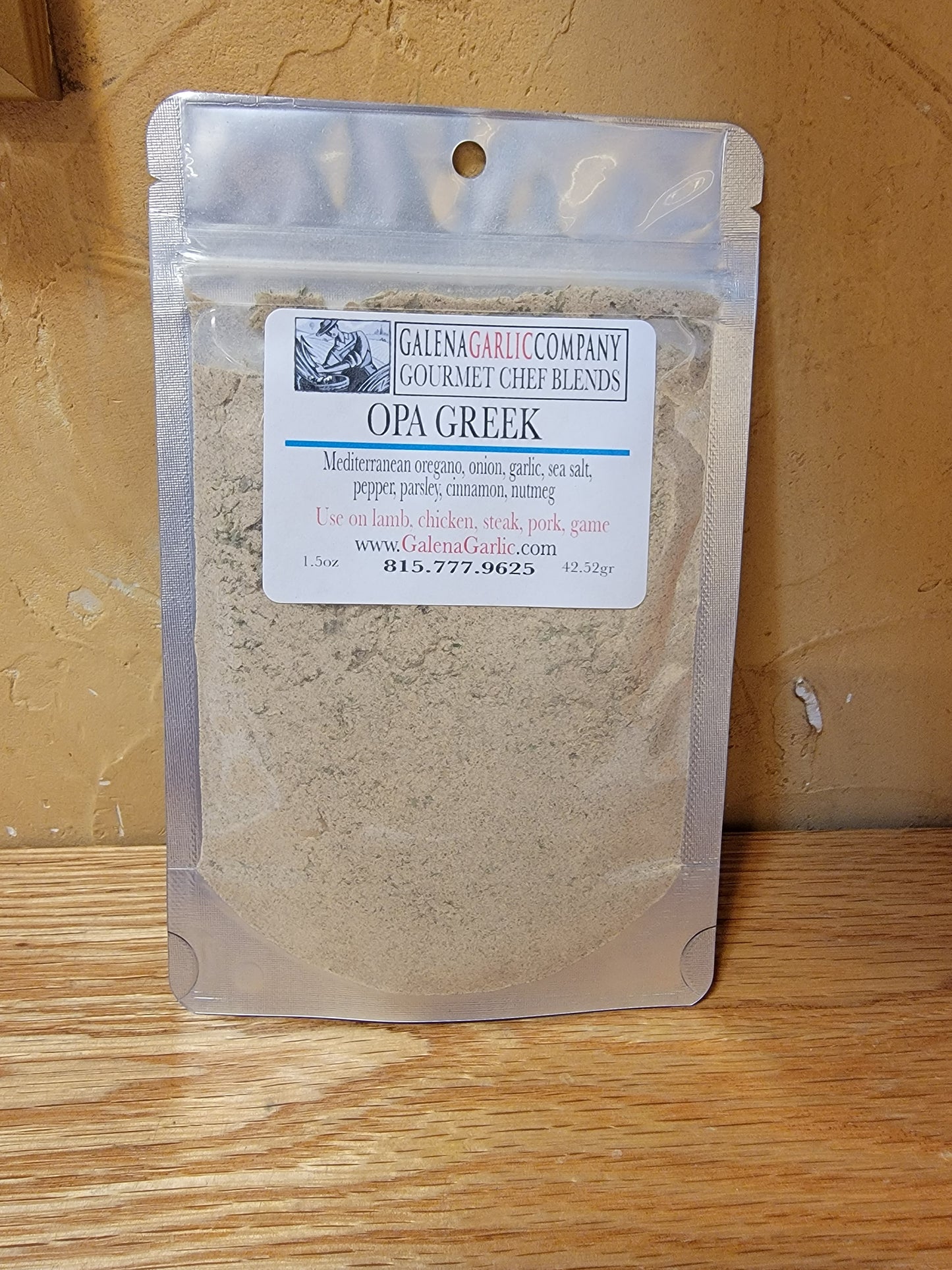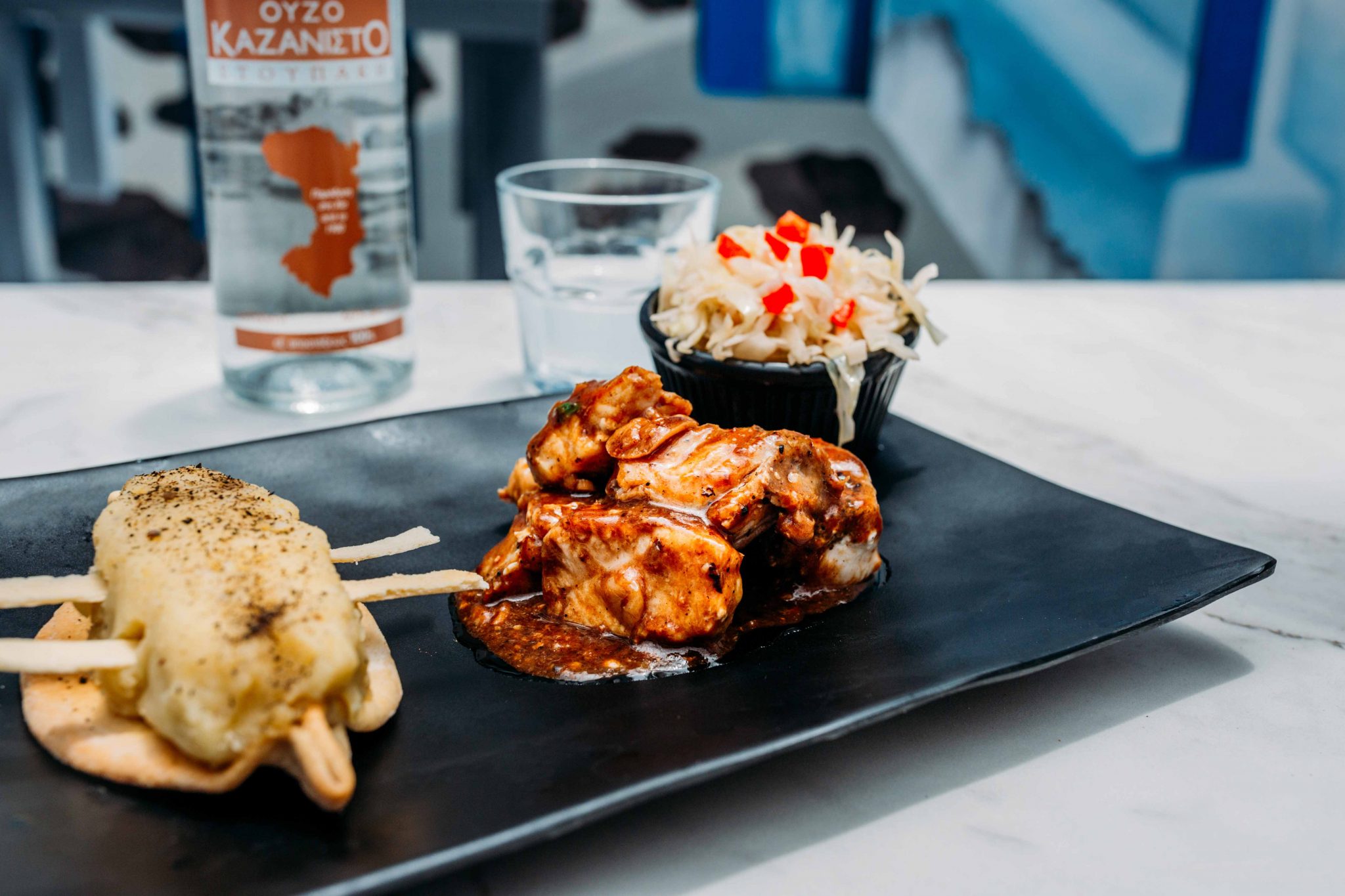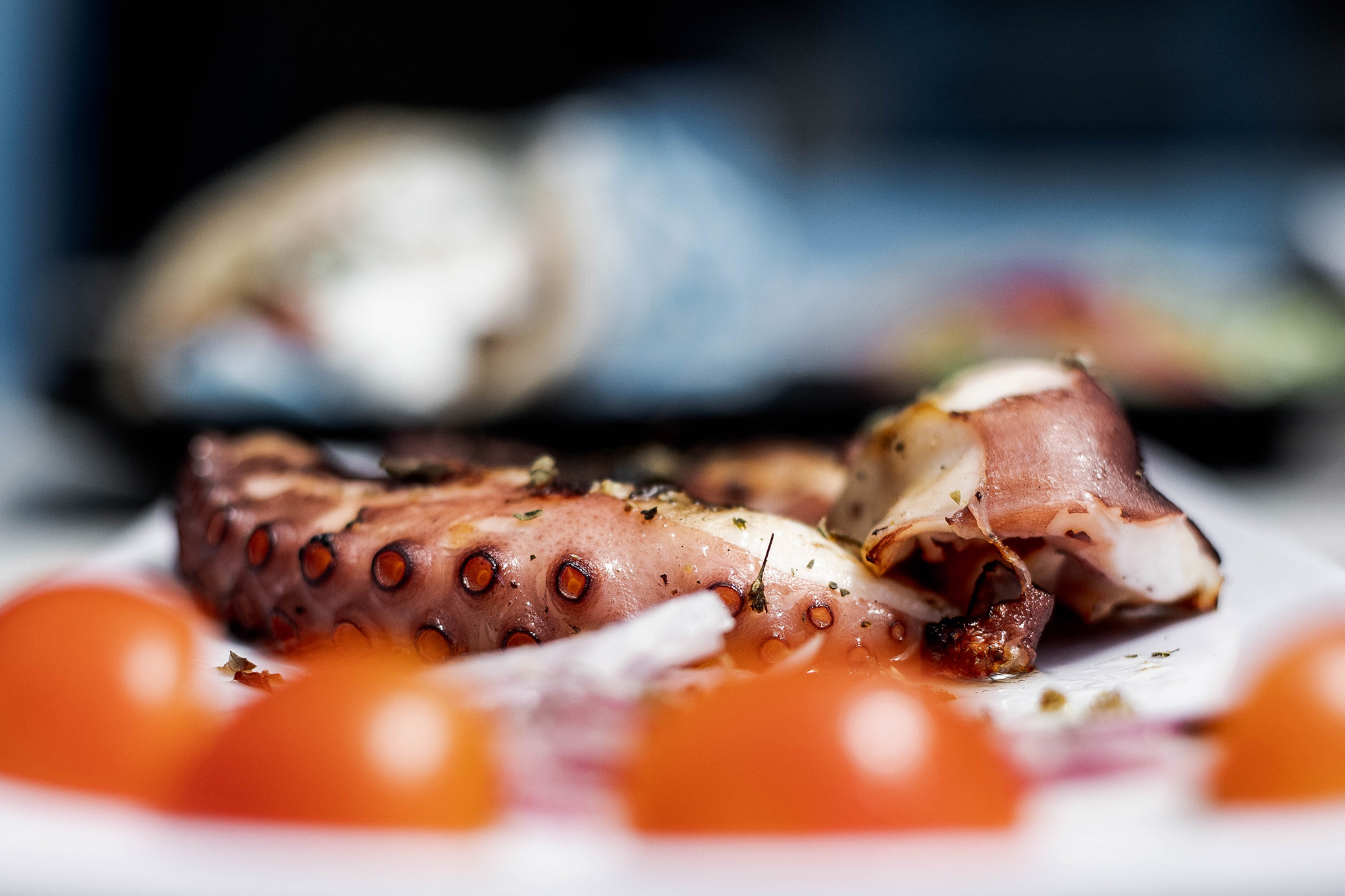What Does Opa Mean In Greek? Unlocking The Power Of This Iconic Word
Have you ever been to a Greek restaurant or watched a movie about Greece and heard people shouting "Opa!"? Well, you're about to dive deep into the fascinating world of this legendary word. "Opa" might seem like just a simple exclamation, but trust me, there's so much more to it than meets the eye. In Greek culture, "opa" is more than just a word—it's a way of life, a celebration of joy, and a powerful expression of emotion.
Now, before we jump into the nitty-gritty details, let's set the stage. Greek culture is rich, vibrant, and full of life. From the breathtaking islands to the mouthwatering cuisine, everything about Greece is an invitation to live life to the fullest. And "opa" is right at the heart of it all. Whether you're clinking glasses of ouzo or breaking plates at a wedding, "opa" is the soundtrack to every celebration.
But why does "opa" matter so much? In today's fast-paced world, we often forget to stop and celebrate the little things. The Greeks, however, have mastered the art of finding joy in everyday moments, and "opa" is their secret weapon. So, if you're ready to discover the true meaning of "opa" and how it can transform your perspective on life, keep reading. This is going to be epic!
The Origins of Opa in Greek Culture
Let's rewind a bit and talk about where "opa" comes from. Believe it or not, this iconic word has deep roots in ancient Greek traditions. It's not just a random sound that people started shouting one day; it's steeped in history and carries significant cultural weight. The word "opa" is thought to have originated from the ancient Greek word "hophe," which roughly translates to "here it is" or "behold." How cool is that?
But here's the thing: "opa" isn't just about language. It's about the spirit behind it. In Greek culture, "opa" is often used during celebrations, especially weddings and religious festivals. Imagine a room full of people dancing in traditional costumes, music playing, and everyone shouting "opa" as they break plates. It's not just about making noise; it's about expressing pure joy and gratitude.
How Opa Became a Symbol of Celebration
Now, let's zoom in on how "opa" became such a powerful symbol of celebration. Picture this: you're at a Greek wedding, and the music starts playing. The bride and groom are dancing, and suddenly someone picks up a plate and smashes it on the floor. Everyone else follows suit, and the room erupts in cheers of "opa!" This isn't just random chaos; it's a deeply rooted tradition that symbolizes breaking away from the old and embracing the new.
Breaking plates, by the way, isn't as crazy as it sounds. It's believed to ward off evil spirits and bring good luck to the newlyweds. And what better way to express your happiness than by shouting "opa" at the top of your lungs? It's like a verbal high-five to the universe, saying, "We're celebrating, and we're doing it big!"
The Different Meanings of Opa in Modern Greek
While "opa" is most commonly associated with celebrations, it actually has a few different meanings depending on the context. Let me break it down for you:
- Expression of Joy: This is the most common usage. When something exciting happens, like a promotion or a big win, you can expect to hear "opa!" It's like saying "Woo-hoo!" or "Yay!"
- Encouragement: "Opa" can also be used to cheer someone on. For example, if you're watching a Greek football match and your team scores a goal, you might shout "opa" to celebrate the moment.
- Surprise: Sometimes, "opa" is used to express surprise or disbelief. Imagine someone telling you they just won the lottery. Your response might be a simple "opa!"
See? "Opa" is more versatile than you might think. It's not just a one-trick pony; it's a word with layers of meaning that adapt to different situations.
When to Use Opa in Everyday Conversations
So, you're probably wondering, "Can I start using 'opa' in my daily life?" The answer is a resounding yes! In fact, once you start using it, you'll find yourself saying it all the time. Here are a few scenarios where "opa" would be perfectly appropriate:
- When you achieve something great, like acing a test or landing your dream job.
- When you're celebrating with friends, whether it's a birthday or just a fun night out.
- When you want to express excitement about something, like a surprise party or a new adventure.
Just remember, "opa" is all about authenticity. Don't overthink it; let the moment guide you. If you feel joy, shout "opa!" If you're surprised, shout "opa!" It's that simple.
The Cultural Impact of Opa in Greek Society
Now that we've covered the basics, let's talk about the broader cultural impact of "opa." In Greece, "opa" isn't just a word; it's a cultural phenomenon. It represents the Greek people's ability to find joy in the simplest things and celebrate life in all its forms. Whether it's a small family gathering or a massive public festival, "opa" is always present, reminding everyone to live in the moment.
One of the most fascinating things about "opa" is how it transcends generations. You'll find young people shouting "opa" at music festivals and older generations doing the same at traditional celebrations. It's a unifying force that brings people together, regardless of age or background.
How Opa Reflects Greek Philosophy
On a deeper level, "opa" reflects the Greek philosophy of life. The Greeks have a saying, "Carpe diem," which means "seize the day." "Opa" embodies this philosophy perfectly. It's a reminder to embrace life fully and not take anything for granted. In a world where stress and anxiety are all too common, "opa" serves as a powerful antidote, encouraging us to focus on the positive and celebrate the good times.
Think about it. When you shout "opa," you're not just making noise; you're making a conscious choice to be happy, to be present, and to enjoy the moment. And who couldn't use a little more of that in their life?
Exploring the Linguistic Roots of Opa
For all you language enthusiasts out there, let's dive into the linguistic roots of "opa." As I mentioned earlier, "opa" is believed to have originated from the ancient Greek word "hophe," which means "here it is" or "behold." Over time, the word evolved and took on new meanings, eventually becoming the powerful exclamation we know today.
What's interesting is how "opa" has managed to maintain its authenticity despite the passage of time. In a world where languages are constantly evolving, "opa" has remained true to its roots, serving as a reminder of Greece's rich linguistic heritage.
Comparing Opa to Other Cultural Expressions
Now, let's compare "opa" to similar expressions in other cultures. In Spain, for example, you have "¡Olé!" which is used during bullfights and flamenco performances. In Italy, you have "Ciao!" which is both a greeting and a farewell. While these expressions share some similarities with "opa," they each have their own unique cultural significance.
What sets "opa" apart is its versatility and emotional depth. It's not just a word; it's a cultural touchstone that captures the essence of Greek life. Whether you're celebrating a victory, expressing surprise, or simply enjoying a moment of happiness, "opa" is the perfect way to capture the experience.
How Opa Has Influenced Global Culture
Believe it or not, "opa" has made its way into global culture in a big way. Thanks to movies like "My Big Fat Greek Wedding" and "Mamma Mia," more and more people are becoming familiar with this iconic word. It's not uncommon to hear "opa" being shouted at international events or even in non-Greek households.
This global adoption of "opa" is a testament to its universal appeal. It's a word that transcends cultural boundaries and speaks to something fundamental in all of us—the desire to celebrate life and find joy in every moment.
The Role of Media in Popularizing Opa
Media has played a huge role in popularizing "opa" around the world. Movies, TV shows, and even social media platforms have helped spread the word, making it accessible to people from all walks of life. In fact, if you search for "opa" on platforms like Instagram or TikTok, you'll find countless videos of people celebrating with this iconic exclamation.
But here's the thing: while media has helped bring "opa" to a wider audience, it's important to remember its roots. At its core, "opa" is a deeply personal and authentic expression of joy. It's not just a trend; it's a way of life.
The Psychological Benefits of Saying Opa
Did you know that saying "opa" can actually have psychological benefits? Studies have shown that expressing joy and gratitude can improve your mood and even boost your immune system. When you shout "opa," you're not just making noise; you're releasing endorphins, those feel-good chemicals that make you happy.
So, the next time you're feeling down, try shouting "opa" a few times. You might be surprised at how quickly your mood improves. It's like a little mental reset button that helps you focus on the positive aspects of life.
How Opa Can Transform Your Perspective
On a deeper level, "opa" can transform your perspective on life. By embracing the Greek philosophy of "carpe diem" and making a conscious effort to celebrate the good times, you can shift your focus away from stress and anxiety and towards joy and gratitude. It's a powerful tool for living a more fulfilling life.
Think about it. Life is full of challenges, but it's also full of moments worth celebrating. By adopting the "opa" mindset, you can learn to see the beauty in every moment and find joy in the simplest things.
Final Thoughts: Why Opa Matters
As we wrap up this deep dive into the world of "opa," I want to leave you with a few key takeaways. First and foremost, "opa" is more than just a word; it's a powerful expression of joy and gratitude that has the ability to transform your perspective on life. Whether you're celebrating a big achievement or simply enjoying a quiet moment with friends, "opa" is the perfect way to capture the experience.
Second, "opa" is a reminder to live in the moment and embrace life fully. In a world where stress and anxiety are all too common, "opa" serves as a powerful antidote, encouraging us to focus on the positive and celebrate the good times.
Finally, I invite you to start using "opa" in your daily life. Whether you're celebrating a victory, expressing surprise, or simply enjoying a moment of happiness, "opa" is the perfect way to capture the experience. So, go ahead and shout "opa" loud and proud. Your future self will thank you for it!
Table of Contents
- The Origins of Opa in Greek Culture
- The Different Meanings of Opa in Modern Greek
- The Cultural Impact of Opa in Greek Society
- Exploring the Linguistic Roots of Opa
- How Opa Has Influenced Global Culture
- The Psychological Benefits of Saying Opa
- The Role of Media in Popularizing Opa
- How Opa Can Transform Your Perspective
- Final Thoughts: Why Opa Matters



Detail Author:
- Name : Miss Ashleigh Feest DDS
- Email : lexus.kreiger@yahoo.com
- Birthdate : 1989-11-08
- Address : 288 Kay Circle New Oswald, AR 62444
- Phone : 704-530-8172
- Company : Koss, Dare and Veum
- Job : Gaming Cage Worker
- Bio : Animi non odio dolores est ex et ut. Et eligendi accusamus aut rerum magnam harum. Asperiores exercitationem enim aliquam eos. Ut et consequuntur et minus officia. Ab eum in sed vel.